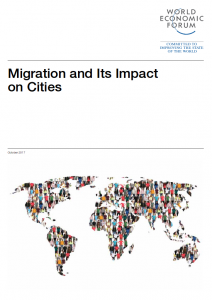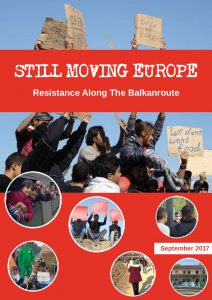 World Economic Forum | 25.10.2017 | Download pdf
World Economic Forum | 25.10.2017 | Download pdf
The World Economic Forum has released a report taking a deep dive on migration and cities, exploring the types, causes and patterns of migration, the most affected corridors and cities, the impact on urban infrastructure and services, the solutions that can be employed and how cities can seek to future proof themselves to address this growing challenge.
The report captures the migration stories of 22 of the most affected cities around the world, including from North America (Montreal, Ottawa, Calgary, New York and Boston), Latin America (Sao Paulo and Medellin), Middle East and North Africa (Dubai, Amman, Ramallah), Sub Saharan Africa (Cape Town and Dakar), Asia (Pune, Surat, Guangzhou and Davao City), Europe (Berlin, Athens, Paris, Amsterdam and Rotterdam) and Oceania (Auckland). The report also presents a high level framework to achieve long term migrant integration and in delivering urban infrastructure and services efficiently and effectively to meet the needs of migrants.
Key highlights of the report can be found here.
You can download the entire report here (High resolution) or here (Low resolution).

